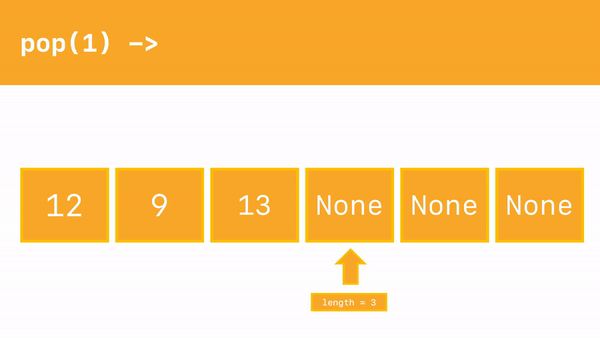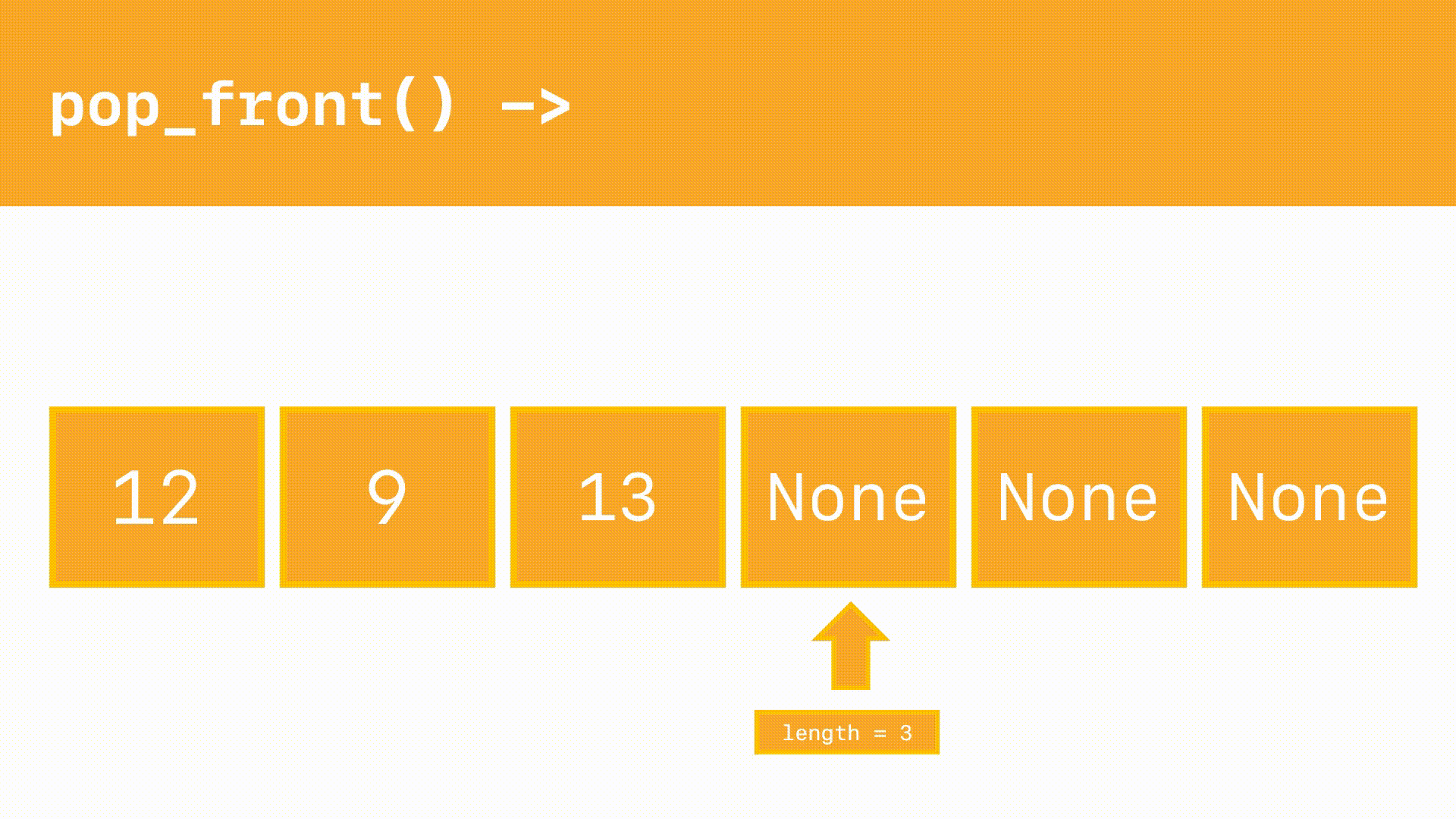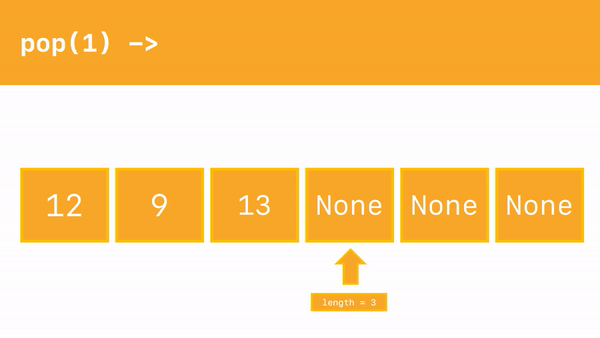Data Structures and Algorithms Interview
20 of 20 Completed
Understanding Arrays
Array Operations (Addition)
Fixed Length Arrays: Addition
Array Operations (Deletion)
Assessment 2 - Array Operations: Fixed-Length Arrays 2
Array Time Complexity And Dynamic Arrays
N-Dimensional Arrays
Rapid-Fire Challenge 1: Arrays and Vectors
Array Operations (Deletion)

emplace, emplace_back, and emplace_front, let’s go through all the deletion operations, ergo, operations that remove an element.
pop_back()
The pop_back operation removes the element at the back of the array and returns the removed element. The operation is very simple, and without edge case checking, consists of only a few steps.
- Get the last element and store it in temporary variable.
- Set
Array[lastIndex] = None. - Decrement the length / count.
- Return the temporary variable.
Now, there is an edge case that we need to handle, and that is when there are no elements in the array. In this case, simply return None.
pop_front()
The pop_front operation does exactly the opposite of the emplace_front operation, removing an element at the front of the array, returning the element. However, instead of shifting the elements to the right to accommodate for extra space at the front, we will instead be pushing the elements to the left to pop the element out.

pop(index)
The pop operation removes the element at the specified index. The algorithm is almost the same as pop_front, but the shifting occurs only at the element right to the index (inclusive). If pop is called using an invalid index, an IndexError is raised.
100%
CompletedYou have completed all sections on this learning path.

